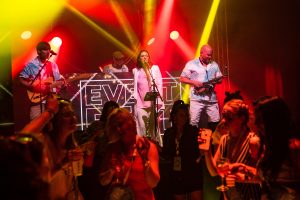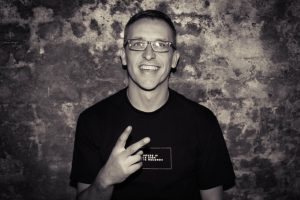
The Ups And Downs Of Running Your Own Events
We’ve spoken with Rob Pursey on these pages before, in an interview covering his career to date. A huge part of that career is built on his choice to run his own events – something that can be a huge benefit to DJs, but which many are nervous to attempt.
I linked up with him to get some pointers on the ups and downs of running his own parties!
How did you first get into running your own events?
It very much happened by accident. I’d been a part of events as a DJ and been involved to a certain extent, but had always taken a more back seat role. We then started our music blog Southern Hospitality and a lot of our events grew out of that and the desire to play music that wasn’t being represented in London clubs at the time. It’s hard to imagine a Hip Hop/R&B club scene that doesn’t play majority ATL rap etc now – but back then we were the only people doing it.
You run multiple club nights – how do you go about balancing those? Are you careful to keep them stylistically separate and spread across various venues, or do things overlap?
Yes that’s crucial and something I’m super conscious about and make a point of trying to match the club event to the venue. For example an event like Players Ball needs that low underground, communal atmosphere it can’t be a table-service affair because we need people to wile out and have fun! Then other events like Rated R, which is an R&B event can be a little more chilled for most of the night and to use an old school phrase can stay ‘bubblin’ for longer, as it’s more about just enjoying the full tunes and not running through records so fast. Hip Hop Karaoke is kind of where everything overlaps, because as well as the performers we have a club night built around it and depending on the crowd that can be an impromptu Players Ball style session, or a more throwback affair – that’s definitely more of a call on the night!
DJing is a pretty precarious job in itself, but running nights takes the risk/reward equation to the next level – what advice do you have for people starting out with events? How do you manage the stresses of risking money – I found it hard to deal with the reality of putting events on that ended up losing money or barely breaking even! And when things are going well, are there things people can do to avoid getting carried away?
Without sounding boring, it really is a case of not getting too gassed. You sell out a few events and make good money and it’s easy to think it will just roll like that forever, but without attention to detail it won’t. I think to start with just put something on that you fully believe in and have a passion for, because that will be communicated to the customer and will more likely encourage loyalty to your event. Losing money can definitely be avoided if you don’t overstretch yourself and just be real about what you’re trying to achieve and slow growth is still growth! The stress is definitely always there in the run up to events, especially ones that aren’t looking as promising as others, but if you just channel that into some sort of action – extra promo – then generally it both de-stresses and adds on to the event itself.
For a typical club event you put on, how many people are involved – from promotion through to the actual night? If it varies, what are the benefits and drawbacks either way?
I run a pretty small team for my events and for larger events bring more people in. On a typical club night it will be myself and a couple of others on the promo, a designer (who does the majority of my artwork) and then door staff and occasionally some street promo staff. The benefits of a small team are obviously larger dividends when the night goes well, but equally I’ve been slightly burnt by cutting a corner and realised I could have made a bit more money or had a busier event with a little help. So it really is a balance.
How important these days is traditional, old fashioned promotion like posters, flyers and word of mouth vs the use of social media?
I think word of mouth is still greater than everything. If people have a banging night, they will come back and bring people. I feel like posters, flyers etc are definitely outdated however when used on the night they can definitely scoop up a few extra people and sometimes just having that visual presence on the streets does sink in subconsciously with people. However in saying all of that, it’s definitely largely social media these days.
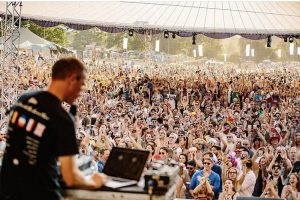
How did you end up getting your brand Hip Hop Karaoke on to the festival circuit? Was that something you pursued, or did festivals come to you?
Festivals came to us initially and then it’s really just rolled on from there. We now have good relationships with a lot of the larger festivals and return each year as well as making an effort to play new festivals that arrive. It wasn’t even something I thought about originally but once we did a few it quickly became the favourite part of my job.
One of the common issues for successful promoters is people biting their ideas – you’ve been ahead of the curve on a few things, so how did you react to others following your ideas?
Yeah I’ve definitely been bitten more than a few times ha ha! I won’t mention any names, but I just have to mentally keep it moving and just try and do my event/s to the best of my ability otherwise you end up chasing negative energy. I definitely try my very best not to do it myself however, even unwittingly as I feel we have to respect each other out here. Generally the original promoters last longer and the biters make a quick buck but don’t know where to go next after that one runs its course.
How important are things like the name and artwork of a night?
Crucial. A good name of an event at the right time can really capture the imagination and mood of people and seem like the essential place to go. Equally with the artwork, it has to signify something to the audience you’re trying to attract, whether that’s a key artist, or some sort of design texture. It needs to be authentic.
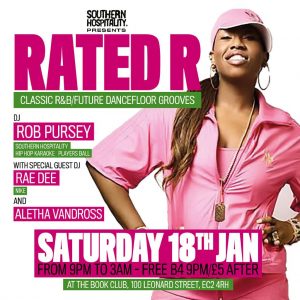
How do you go about building up and sustaining a following and community around a club night?
Pretty much as I mentioned before, by paying attention to how the night is going and making sure the musical programming isn’t predictable and generic. I also make an effort to be at the door and amongst the people at my events and build relationships with my crowd old school style. People then begin to trust you when you launch new events. It’s not contrived however as that’s just how I am – I like people! The community part is super important to me and if you have that then you’re halfway there to putting on great events as your crowd will do the promotion for you.
If you could go back in time and give yourself one piece of advice before you started putting parties on, what would it be?
I would definitely train people up to run an event in my own image then I could take a few more nights off! Team is everything and I definitely left a lot to chance in the early days and just gave myself too many jobs!
What did you do during lockdown to maintain your events and brands and keep connected with your communities?
With Hip Hop Karaoke we did ‘Quaraoke‘ which was so much fun and I actually found we got people who couldn’t always get to the events performing online which was super satisfying. Also just posting stuff of relevance and keeping the aesthetic and energy of the events online as much as possible.
What have you got going on at the moment, and the coming months?
Well, as things are (slowly) changing, we’re gearing up for our first post quarantine events, which may be a slightly pared down version, but will be great to get back nonetheless! In the meantime I’ve been keeping my hand in by doing some sets online and some at larger open spaces like Boxpark Croydon, so I’m not totally rusty!

Cosmo Baker
Can you tell our readers a little bit about who you are, and what you do?
I’m Cosmo Baker and there’s a lot of things that I do but primarily I’m a DJ and music guy who’s based in Philadelphia. I mean I do a lot of things haha, from being involved with education, entrepreneurship, activism and so on – but every road in my life has come from me being a DJ and from being involved with music. I’m extremely grateful for that!
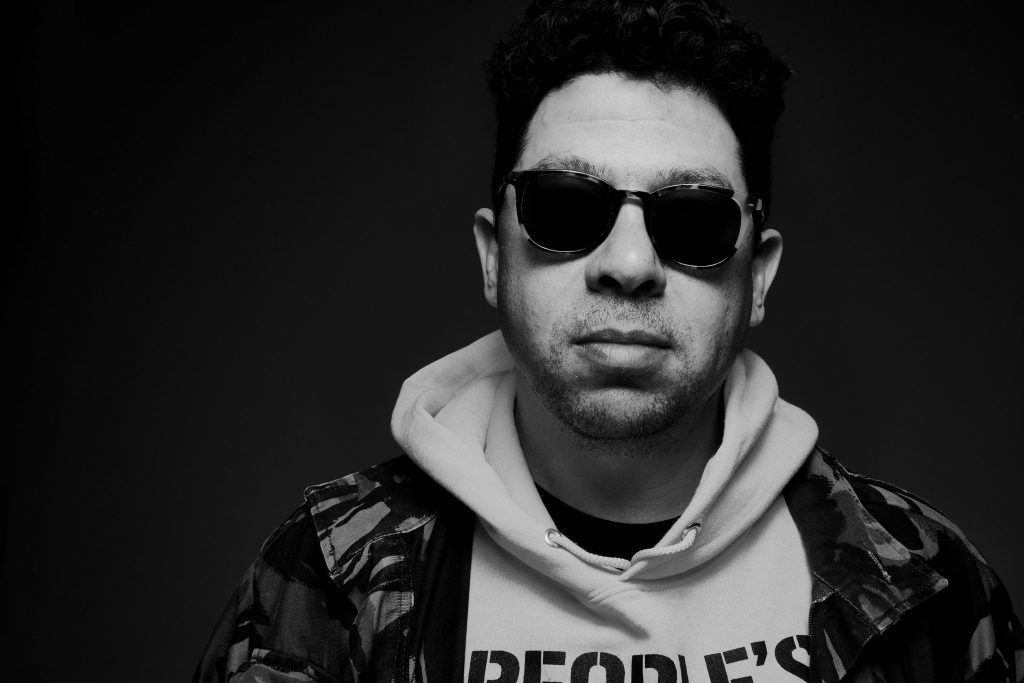
You’ve been in the game for a while now – what inspired you to get into DJing? what was your initial set-up, and where did you play your earliest sets?
Well I think my original inspiration to become a DJ stemmed from just growing up surrounded by music and diverse cultures. My mom exposed me to all sorts of different music in our household of course, and just growing up in a big city and everything that you get from being in that environment. I think the desire for me to share is something that’s pretty natural to me, and also being curious by nature. Plus you have all this early hip-hop stuff that’s just floating around as a kid, and you’re seeing it all kind of unfold in real time, and when you’re young that feels like it’s this secret club that you have a membership for. That’s probably the closest thing as to what inspired me to really do it, because I got started very young. Now my first sets were DJing for house parties and basement parties while in school, but it wasn’t too long before I was spinning in proper nightclubs – I was playing in really big, popular clubs in Philly by the time I was like 17 years old. When it comes to my original setup, initially I had two really crappy turntables, like direct-drive joints, and one didn’t even have pitch control. I would have to just speed up or slow down every other record in order to blend haha. And my mixer I think was a Realistic mixer from Radio Shack – I’m sure a bunch of DJs know exactly which one I’m talking about!
You’re from Philadelphia – a city known for a great tradition in DJing. How has that influenced your approach to DJing?
That’s a good question and to touch on the Philly thing, everyone pretty much acknowledges Philly’s position in the tradition of DJs as being top notch and many people always say something like “It’s something in the water” but that’s not really the case. Philly is a tough, working-class city and people do not take any shit, and they have good taste. To me, if you learn to DJ in Philly, if you are not good the people are going to let you know immediately. With that being the case, one would have to get really good, really quick, or you just won’t cut it. Also, with Philly’s close proximity to New York, there was always this “little sibling” rivalry that was prevalent so Philadelphians, with the constant chip on their shoulders, always had to try and “one up” every development that was happening in NYC.
How would you describe your DJ style? What are your favourite things to play, and why?
I love so many different genres of music and I always want to try and make that somewhat clear whenever I play a set. Traditionally growing up in Philly when you would go out to parties or clubs the DJ would be playing all sorts of stuff across the board, so I’ve always liked to be able to take a left turn in a set by playing something out of the ordinary and just making it work. I mean I got into all of this because of Hip-Hop but also if you think about it that ‘left-turn” mentality is written into the DNA of the music. And as to my favorite thing to play that’s an easy question – I love playing disco. Cause I love the music, I love the energy and feeling, and I love to dance!
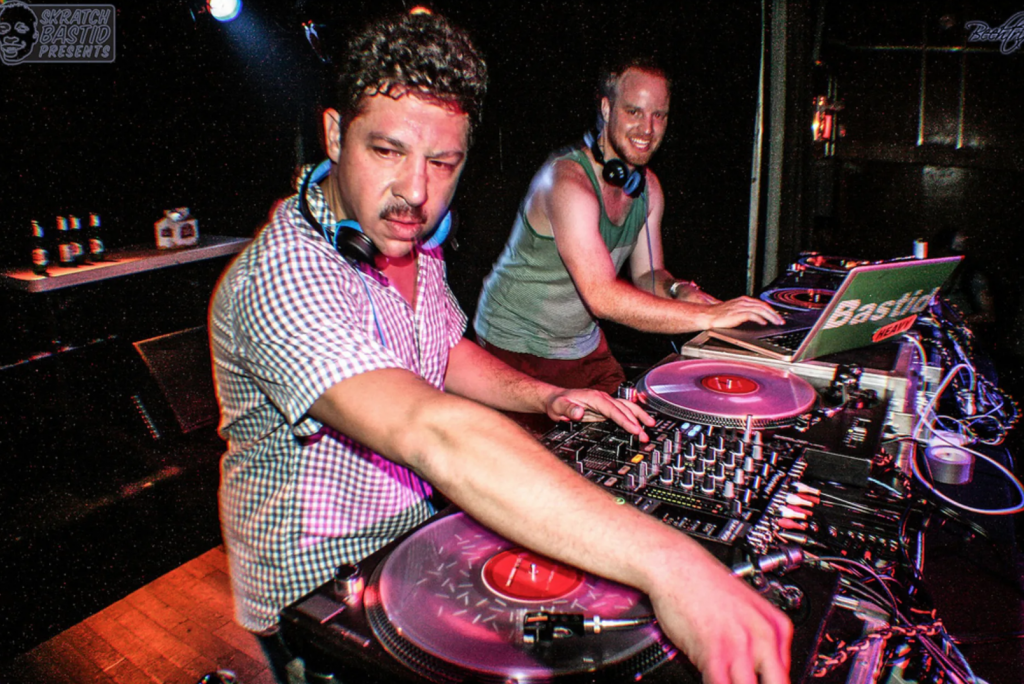
How did your time in New York impact you musically?
I lived in NY twice actually! Philly and NY are pretty close, like about 140 kilometers and I would always go up and hang out when I was a teen. But when I first moved up it was 1994 and so if you could imagine what the city was like then. I was already playing in downtown nightclubs and you have to really try and imagine how cool it was when you’re playing a record that’s BRAND NEW – and it just happens to be a song by Notorious B.I.G., Or hey I’m gonna play this new song it’s called “Shook Ones Pt. 2” – a real magic time for sure where a lot of the songs that are now considered canon were fresh at that moment.
In addition to that, at that time I really got into house music just because I would be out and be able to see DJs like Frankie Knuckles and Louie Vega, David Morales and Junior Vasquez. An amazing time for sure. When I moved back up in the early 2000s it was right after we had launched The Rub so us as a crew and also as individual DJs were really in the mix with everything that was happening in the mash-up wave. Until that wave came crashing down haha.
You wrote a great thread on Twitter in reply to a snarky Snickers advert – you clearly take the role of DJ seriously. What do you think are the main responsibilities of DJs, and why do you think these are so important?
I’m glad that you liked that. I really wasn’t trying to get too into it with the company but to me it was disrespectful to people who actually are DJs for the occupation. And it goes way beyond a guy like me, who’s marginally well known, and also really reframes the definition of success. There are thousands upon thousands of working-class DJs out there who feed their families and pay their bills by entertaining people, doing something that they love. I think there’s a nobility in that. The responsibility of entertaining people, educating people, and providing a place of solace and escape are truly important things to be providing to a community.
With over 25 years behind the decks, you are something of an elder statesman in the DJ world – how do you see your role in the DJ community, and the wider community?
Haha I don’t know about “elder statesman” although that’s very kind of you to say, but I do appreciate the fact that I have been able to have a pretty sustainable career and at the same time give back to a culture that has given me so much and allowed me to thrive. And if I have a position that allows me to highlight or put on people who may deserve shine and aren’t getting it, or to impart some sort of guidance to my fellow DJs, or to youth in general, I am happy to be there.
How has technology changed the DJ world – both in the booth, and elsewhere? For instance, I first encountered you on the Hollerboard, which was a huge influence on my approach to DJing, and my network of contacts around the world!
The technology – both the actual DJ tech itself, and the internet that has allowed us to get and share data and to me more interconnected – has been a great thing in the way that it’s given so much to the culture. The technology of digital DJing has truly allowed a vast wave of creativity with DJs that never seems to stop growing and has really allowed people to push the creativity to the limits. And with the internet we’ve been able to market ourselves on a global scale, which has led to building relationships where we are able to operate in a micro gig-economy. But most of all it’s been great because through the internet I have been able to meet so many great friends all across this planet!
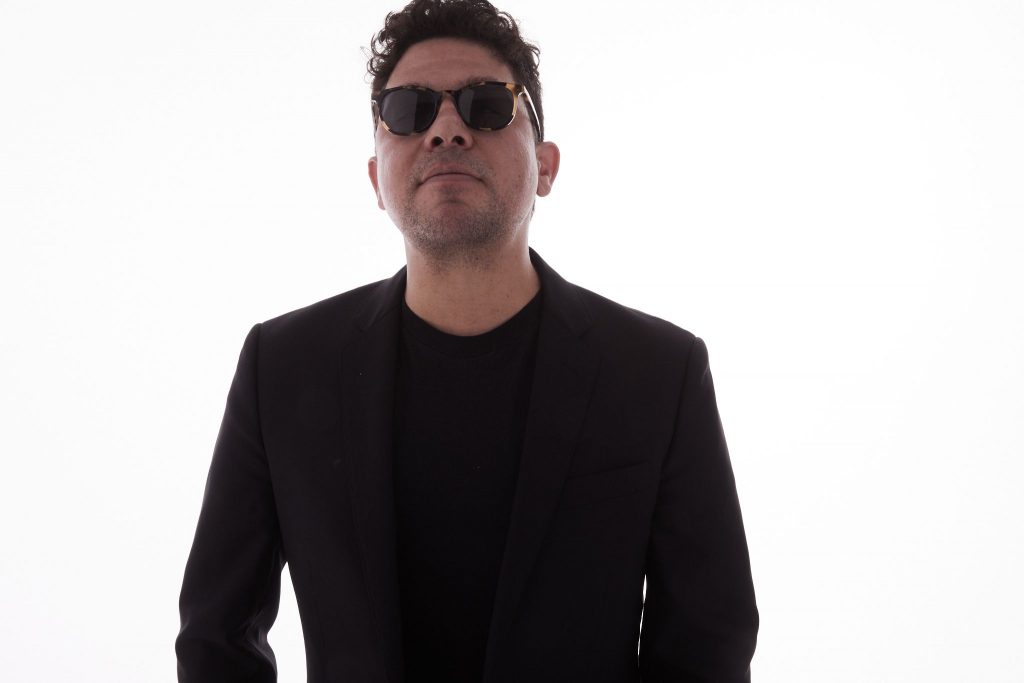
What are your hopes for the post-lockdown world – both in the world of music, and more widely?
Well between COVID and the great awakening that is this revolution I truly believe that we are going to come out victorious on the other side. We have to be optimistic about that, because we have no other choice. Starting with the pandemic we started to see this thing like the old children’s story “The Emperor’s New Clothes” situation play out in real time. All these systems that we’ve been beholden to are now being exposed for how bad they really are.
Governments – they’re inept. This economic system – broken. This healthcare system – broken. And people are fed up and they are tired and they are weary. Then you throw this new great depression in the mix and you have millions upon millions of people who are vulnerable and they now feel as though they’ve been rightly fucked up, and they are correct in that. Add to that the brutality of having to live in quarantine for months on end and all you see is some sort of trauma or another daily, and then you have something like the George Floyd murder and that was just the spark that landed in an already exposed powder keg. So now it’s exploding, as it should. It’s way overdue.
So I have to remain optimistic that through the power of the people and the movement that is happening now that we will be able to enact true and lasting change that will be able to reshape and reframe our global societies and how we see ourselves both in them and interacting with others.
It’s a fucked up time but also on the same note it’s oddly a very exciting time as well. I can truly feel this as maybe being “The One” and there are many people who are older who I’ve talked to and they feel the same. Now of course like I said we must stay optimistic, but at the same time we can’t sit this one out. Everyone is in this fight.
Now for the music I would bet that we are going to see some amazing stuff in a few months. Don’t forget that traditionally in times of great strife, great art has been produced. Look at the 60s, or during the Reagan era. Huge stuff happened during those times.
Lockdown has been a pretty huge challenge for most djs – on multiple levels. How have you adapted to stay active as a dj, and also to stay healthy – physically, and mentally?
I got into the streaming thing pretty early, like early March in perhaps the first week. I have had some experience in streaming before but when I did it my reason was because I needed the catharsis and the release in playing music for people. When I saw the initial response, I was floored and immediately it hit me that this is going to be a good thing. So that’s really been helpful in keeping sane and also staying connected to my fan base. Also it has been helpful to me to approach the whole streaming thing as it were an actual gig. So setting up consistent scheduling, formats, have the branding and the promotions for it all, and really try to define the identity of what it is that I’m doing. I think that when everyone is feeling weird and nothing is certain, having something that is consistent and reliable for people to hold onto is key. And that sense of “consistency” goes beyond DJ streaming – you have to have that in your regular life. Set your alarm, make your bed in the morning, have breakfast – all the little things that keep you rooted in normalcy. That’s been super helpful and key for me to staying healthy!
How have you found the experience of livestreaming? I’ve had a bit of a love/hate thing with it – when it goes well, it can be the best thing that happens that week, but if I have a bad one for whatever reason (technical issues, streams being taken down mid set, low numbers etc) I can take it far harder than I really should.
I mean it’s fun and it’s great and it’s also exciting in the sense that we are all collectively creating something from scratch. The tech stuff is annoying but the copyright stuff is really the biggest bummer of them all. That’s why I like that Mixcloud does video streaming and I think they may come out on top after all this is done. And also it’s definitely allowed me to go into my own zone creatively, specifically how I want to format and produce my shows. So it’s cool… But nothing beats playing live for people. Nothing ever will. I hope that we can get back to that one of these days.
With the terrible killing of George Floyd, there have been huge protests in the USA, and worldwide, in support of the Black Lives Matter cause. What roles and responsibilities do you see the dj community having at moments like this?
I think it’s been pretty well noted where I stand on the issues of both system racism in our country (and globally) as well as my desire to finally see true Black Liberation. But speaking about it from the perspective of a DJ… As DJs we serve the role as entertainers, educators, healers, voice for the voiceless. So it is imperative for us to use our voices to speak up for those who need it. People who are silent – everyone sees you. Trust me, people are not going to forget. And lest I have to say that those who decide to remain silent might as well be complicit in the actions of the oppressor. I don’t care about your brand – in fact fuck your brand. You stand on the sidelines for this, you’re playing for the other team. And this goes SPECIFICALLY to white DJs who are in this game. Never forget that you are a guest in a house that was built by black folk. You should be grateful to even have a space in this. So earn your keep.
Check out Cosmo on Twitter and Instagram, and at Twitch, Mixcloud and Soundcloud! Get the latest heat at the Heavy Hits record pool, and follow me at Instagram!
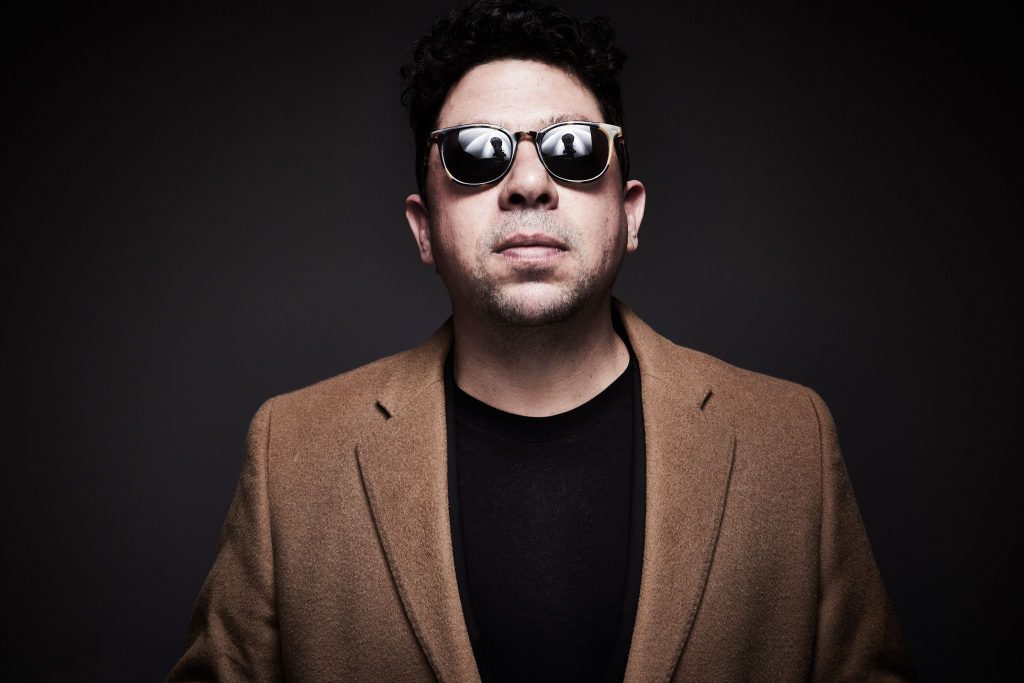
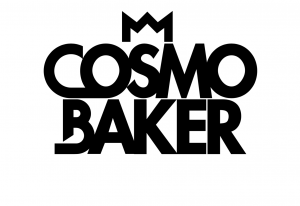
Serato Studio, with DJ Blakey
Could you tell our readers a little about your journey from young battle DJ, to being Serato’s Artist Relations guy in London?
I entered my first DJ battle in 2000 in Chichester when I was 15. I did it under a different DJ name and I was terrible. At that point I had only been practicing turntablism for about a year, so I fully expected it to be bad! I kept at it and basically spent all day every day practicing scratching, beat juggling and routine composition. In 2001 I entered the London DMC regional, still 15 years old, and I got through to the evening final at Cafe De Paris. I went on first and they kept me in a back room of the club because I wasn’t old enough to be there. Again, my set wasn’t great but it was certainly an improvement on 2000.
At that point I really started to take it seriously and in 2002 I came 2nd in the London DMC regional, making it to the UK final. In 2003 I came 2nd in the UK final, and in 2004 I won the UK final and came 4th in the World final. I entered one more competition in Japan in November 2004 after being invited to participate by Vestax. That was my last DJ battle.
Fast forward to the 2017 and Baptiste from Serato contacted me about the European Artist Relations role. I had 4 separate Skype interviews before Matt Perry (Artist Relations Manager) and Scotty Hoogerbrug (CMO) came to London to interview me and decided to employ me.
Serato is pretty well established as the most popular DJ software for open format and hip-hop DJs around the world – is Serato studio an add-on/plugin, or a separate program?
It has a quite similar look, but Serato Studio is actually a separate app altogether.
Serato Studio has been floating around for a while, but this seems to be a much different beast to what I saw when it was originally released – what’s new in this?
You’re right, it’s a totally different application just a year on from release. It now has a completely free mode, which allows you to use it as much as you’d like with some limitations, but still letting you be creative and make some dope stuff. We also recently added an auto chord feature, which allows you to write chords into your songs by just hitting one note. These chords will then change key if you decide to change the key of the entire project. You can also change the feel of these chords, which puts space between the notes to give a more natural, less robotic sound. It’s the most fun I’ve ever had making beats. I spent a lot of time between 2010-2013 making music in my spare time, but I came up against the same obstacles every day. Studio breaks down a lot of those barriers and allows you to just get busy with making a tune and having fun.
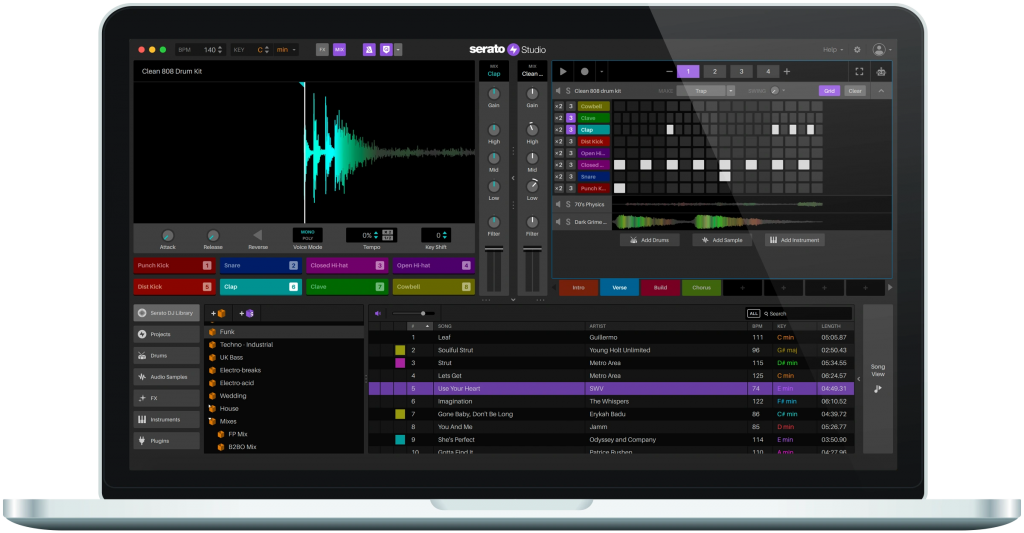
What sort of tracks is this aimed at making? I noticed that there’s a couple of different modes, “New beat” and “New DJ Edit” – what’s the focus of each, and how do they differ?
We have templates and drum patterns for pretty much every style of music, so you can make any style of music you like. You can also make DJ edits for your DJ sets inside Serato Studio, and you can get as creative with these as you like. If you want to just edit a song’s arrangement, you can do that in seconds. If you’d like to add drums, samples and instruments to your DJ edits, that’s really simple to do too. This feature has been really popular because DJ’s know that making edits and original music for your DJ sets is one of the key ways to stand out in today’s scene.
I had a play around with the free version today – really fun making up beats with the step sequencer! Is that sort of functionality something you could ever see being adding to Serato DJ for live use?
There are no plans to fuse the two applications right now, but we’re open to these kinds of suggestions!
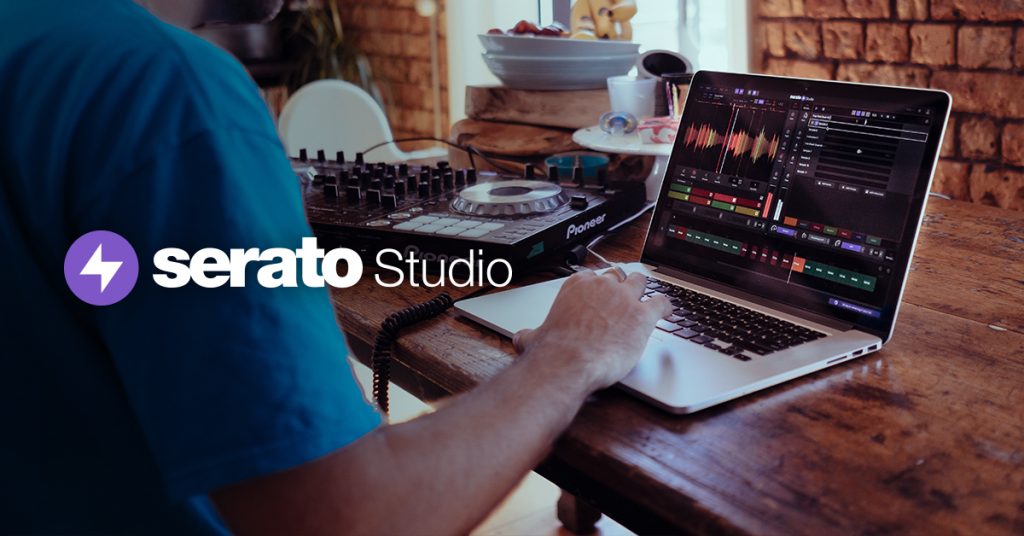
What sort of updates will there be for users? There seems to be loads of drum and instrument sounds already, and a decent selection of drum pattern presets. Will those be updated/tweaked as trends change and new genres emerge?
We add sound packs every month, which are free to download for subscribers and people who have bought the software outright. We’re also really listening to the feedback of our customers and directly our feature roadmap towards what people want, so we’d love to hear any feedback that people have. I’d love to see some UK garage drum patterns in there, for instance.
Is there anything else about Serato Studio or Serato in general you’d like to tell us about? And where can we check you out online?
There is some very cool stuff being worked on at our HQ in New Zealand. I was out there back in November and I was shown some things that really blew my mind! Something I’m particularly looking forward to is the official Phase collaboration, which we showed in it’s alpha state at NAMM back in January. But there is plenty of other cool stuff in the works this year too which people are going to love.
My IG is djblakeyuk. Come and give me a follow ✌
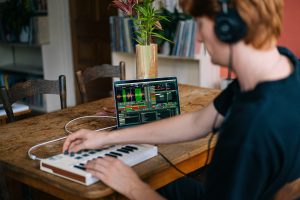
Rob Pursey – Hip Hop Karaoke/Southern Hospitality
Can you tell us a bit about your background, and how you got started in music and DJing, and putting on your own events?
I really got started in events just by virtue of having more records than most people, being a total music obsessive and working as a music journalist for Hip Hop Connection and a few other magazines. I then got a few DJ gigs with a few friends who were doing cool hip hop stuff like DJ Yoda, Dan Greenpeace etc, and then I was in the game! My love for Southern rap in particular led to me putting on my first events with Rich Firth (DJ Superix) and Tom Hickey in the old days of Shoreditch where we did an event called ‘Crunk!’ (GREAT party) and then shortly after began my brand Southern Hospitality with Superix and Davey Boy Smith. Then starting Hip Hop Karaoke was really what made me become a promoter almost overnight as it was super successful and having a weekly event (thats still running now) I could then take the leap of faith, leave my job, and do this thing properly and do more club events, run new music showcases with Davey Boy Smith at SXSW, take Hip Hop Karaoke to festivals and larger venues.
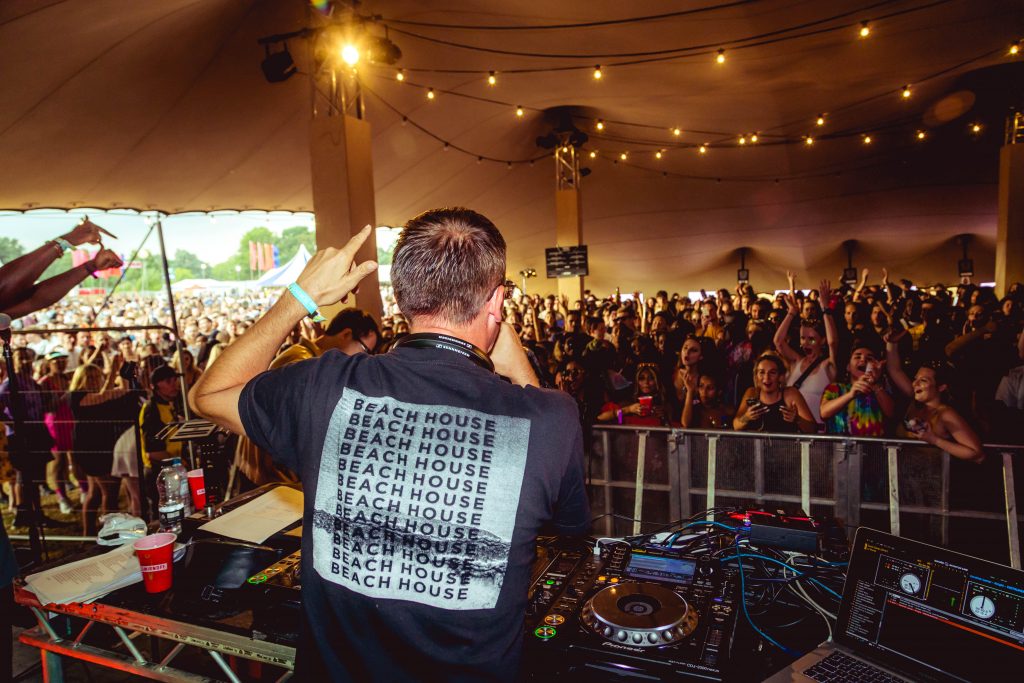
Which way round was it – DJing that led to putting on parties, or putting on parties led to getting on the decks? How does your experience of doing both change the way you do each of the roles?
I was definitely a DJ/music person first, and an accidental promoter! Having the experience of being a promoter 100% improved my DJing as you have much more invested in the event, and you think about everyone’s fulfilment in a way that you don’t so much when you may just be turning up and DJing for an hour. In fact for years we didn’t had any guest DJs as we had a specific vibe at the events whether it was a Southern Hospitality club event or Hip Hop Karaoke, and the crowd came for that particular inclusive, happy vibe – so we knew we had to control that. When I’m DJing my own events I always have one eye on everything and the mood, taking them on the cliched ‘journey’ lol.
How did you get into radio DJing? How do you find that vs club DJing?
I’ve always dabbled with radio and often used to be a guest on Dan (Greenpeace) and Zane Lowe‘s rap show on XFM back in the day – but in recent years being able to work with people like Soho Radio is a true blessing as they fully support great music and the autonomy to do what you want, so I absolutely love presenting right now. Over the years club DJing has been the most amazing experience at times – especially in the days of early Players Ball – when we were pretty much the only DJs in London playing new regional rap music before everything got lumped in as ‘trap’ and watching that excitement in the club as we broke the new records was priceless. In recent years I’ve enjoyed festival stages more and any opportunity to use the mic and interact with crowd is now my favourite kind of DJing – so radio with the combination of more talk and the music I really want to play is awesome.
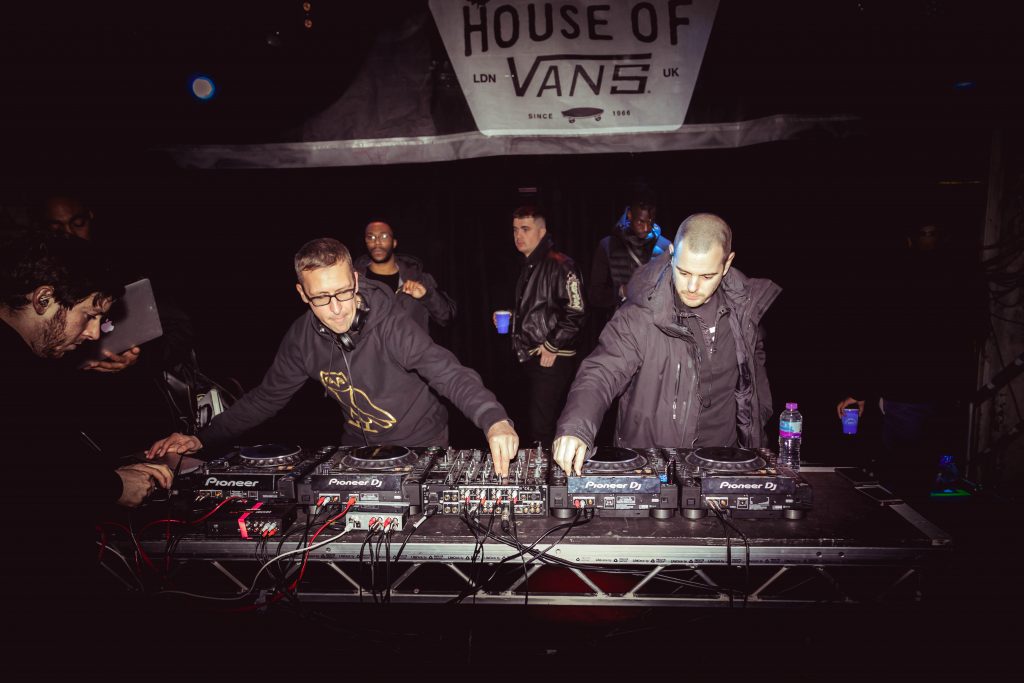
You spent some time as a writer over the years, and these days are very active on hip-hop Twitter – do you think its important for DJs to get involved in those sorts of conversations, or at least read up on their scene, as well as hone their DJ skills?
You know what…I think you will always be able to tell a DJ who has lived the music in real life and that counts for the most for me. It’s good banter to have conversations about the music and the culture but as long as someone’s experiencing the music as it should be experienced then I don’t think they necessarily have to be part of the conversation. You gotta have a pretty thick skin to put your opinions out on Twitter these days lets be honest! I just ask that people respect the music – and don’t just be a voyeur or someone who only uses it to get cheap laughs or quick money etc. I love people who have passion and enthusiasm most of all and thats who I try and follow and engage with.
How did Hip Hop Karaoke come about? And can you tell us a bit about your various nights, and how you differentiate them to avoid them clashing with each other?
Hip Hop Karaoke was one of those things I just thought of and unlike a million other ideas I’ve had I just actually did it and here I am over 10 years later! As well as HHK which I host weekly at Queen Of Hoxton and also Boxpark twice a month, as well as events at the Tate Modern etc. I also run an events called Players Ball, Remedy and Rated R. Each one is really a different facet of music i love to hear in clubs. Players Ball is largely a pure rap music playlist with the emphasis on energy and bounce and the rawest records there are, whereas Rated R is an event I host at The Book Club and indulges my own and all our crowds love for R&B where we’re more likely to be two-stepping than turning up all night! Remedy is a newer event with residents like Rae Dee and SmallsTheDJ, alongside myself, and is an all out house party in a club – we go all over the place with that one with the emphasis on fun, sing-alongs and just good vibes.
You have a depth of music knowledge that few do – what are your main methods of digging for new/old stuff?
Thank you. To be honest I just pay attention and when you really love something the knowledge seems to stick. So following good people on Twitter, using the streaming services, visiting record shops, going down YouTube rabbit holes every night, talking to people, digging through discographies on Discogs and also just experiencing it every day like I mentioned earlier. Really there’s no substitute for just being involved in music – like in the same way people who are fashionable (I am not one of them) can pick a dope outfit out where the average person can’t because they just live for it.
How do you cope with the stresses and pressures of a quite unpredictable industry – both in general during normal times, and also at exceptional moments like right now?
Exercise definitely helps and I play tennis as much as I can, and the competitive nature of it switches me off from what I may be stressed about with work. I definitely experience bouts of anxiety due to the nature of the business, but I have some great people to talk to who always give me good advice or may offer a different perspective. Right now It’s definitely an unsure time, but I’m also making the most of spending amazing time with my children which I know will never come back as they’re only getting older – so gotta enjoy that and place that at the centre of everything I’m doing. Also playing great music helps – ha!
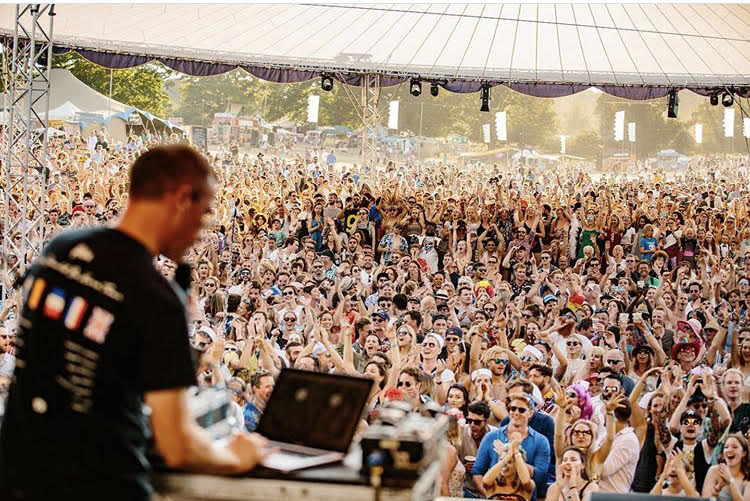
What impact do you see the lockdown having on the music people are playing in online sets, and seeming to listen to? Do you think that will make a difference when clubs re-open?
I’d love to think it will make a difference to clubbing in the sense that in recent years the scope of people’s desires of what they want to hear have been limiting, so you never know maybe people will be more open-minded again when they return? I definitely think for all those rap/R&B/afrobeats DJs who’ve been moaning about having to play the same 10 songs each week, they should be using this opportunity to let the world know what really defines them musically. If I see someone mixing Mo Bamba into Sicko Mode into The Box on IG Live I’m definitely logging out ha ha!
What advice would you give a young DJ looking to start a long-term career in music today?
I think it depends what your motivation is. If it’s just to make a ton of money, then I could give a load of cynical advice that I certainly haven’t listened to all the time. However, if it’s to have a long sustainable career, and have an impact and a strong legacy (on either a small or large scale) I think just keep music, and your love for that, at the centre of everything. People will always respect the music people, and I think if you make decisions based on that you will always have good peace of mind if nothing else.
Anything else you want to tell our readers about?
Just that we’ll hopefully be back soon with Hip Hop Karaoke, Players Ball and all our other events – however, in the meantime people can join us on IG Live Every Thursday for our weekly Hip Hop Karaoke ‘Quaraoke’!!! And please check out our radio show The Regulator Show on Soho Radio – it really is for people who love deep dives into Rap and R&B!
Heavy Hits
Rob Pursey’s Lockdown List

Martin 2 Smoove
It was my pleasure to get to ask today’s guest a few questions – Eve’s tour DJ, Gumball Rally resident, winner of Best DJ at the London Bar & Club Awards in 2017, and the man who Rihanna called “London’s hottest DJ” – high praise indeed! He’s played all over the world, alongside some of the biggest names in music, and has residencies at some of the hottest parties in London, such as Milkshake at Ministry of Sound, and London Reign Showclub. Lets hear what he has been up to…
Can you tell our readers a bit about how you first got into DJing, and some of your big achievements to date?
Hello everyone, I go by the name of Martin 2 Smoove, I’m a DJ, music programmer and curator and I’m trying to turn my hand to making edits (trying being the key word in that haha!).
I also love music which I think is the most important rule in doing this. In my opinion, It should be at the top of of your reasons as to why you want to become a DJ. I started collecting music at school, used to go without buying lunch and spending my lunch money on records or a record (as it was expensive back then).
I was inspired by great music played and presented amazingly well by people like Jazzy Jeff, Trevor Nelson, DJ Swing, Shortee Blitz, and Mark Ronson.
In terms of big achievements, I guess from winning awards and travelling the world I think the biggest achievement is making a living just playing music that I genuinely love.
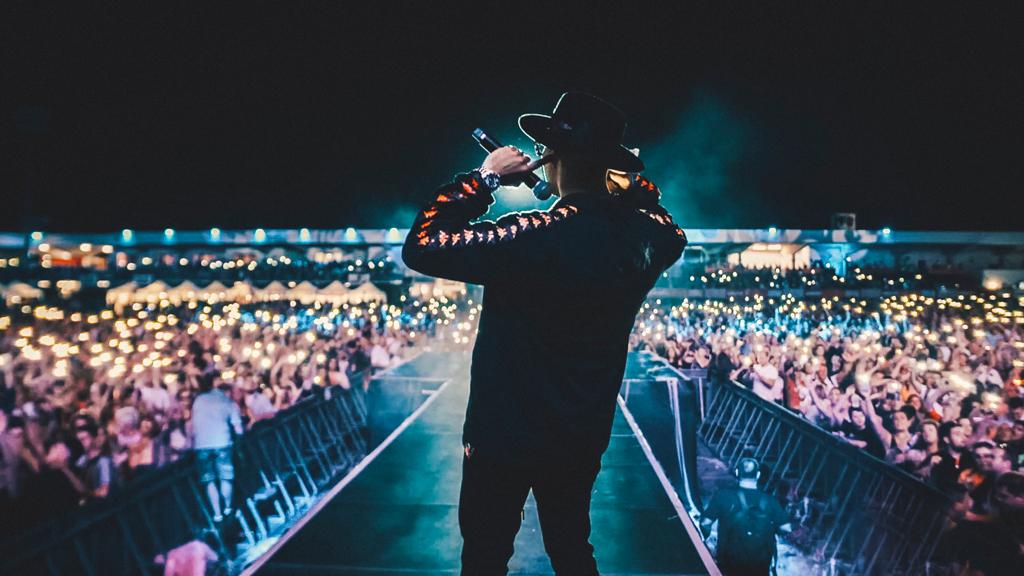
As I understand it, you really hustled to get your break DJing for Eve – can you tell us a bit about how that came about?
I wouldn’t actually say I even hustled for this. I think all my early part of my career was working crazy hours, doing interns at record labels, putting on events, giving flyers out, DJing at less desirable events for next to no money. I never had any family in the music industry so getting any short cuts inroads wasn’t really an option. That’s not dissing anyone that has it, you have to use whatever you can.
So before DJing for Eve I got put forward to DJ for a G called Cleo Sol (an amazing singer, and song writer from west London) by Ben Scarrs and Hanif Boogie whom are Dave and Splurge Boyz managers. It’s funny because a few months earlier I tweeted I really wanted to be an artist’s DJ then got asked to do a tour for the MOBOs with Cleo, and worked with her for a few years.
So fast forward to 2013 I got a call from a gentleman called Matchstick (who used to be my boss as an intern at Atlantic records) saying that he has an American artist that is looking for a tour a DJ, at the time Cleo was taking a sabbatical, so I said yes. I wasn’t told who the artist was but I had to go and meet them at another place which I interned as a uni student (wise buddah). Turned out it was Eve. Obviously I was a little nervous there was a hip hop legend in the room and I was going through her show etc.
So we did two shows; one was for Lovedough (where I was a resident at), and one was a big show at Heaven, to coincide with her album launch. I completely messed up the important show in terms of song order. But Eve genuinely is one of the best MCs live, she sounds exactly like she does on CDs, she looks like a rockstar and just has presence and she just carried on like nothing happened.
After that show I honestly thought that was it and that was my last one as her DJ. But got a call a couple of weeks later for another gig abroad and 7 years on as her DJ the rest is history. I’m definitely super lucky to work such a G. She’s genuinely the dopest to work with and her, and her husband Max has become a good friend along the way.
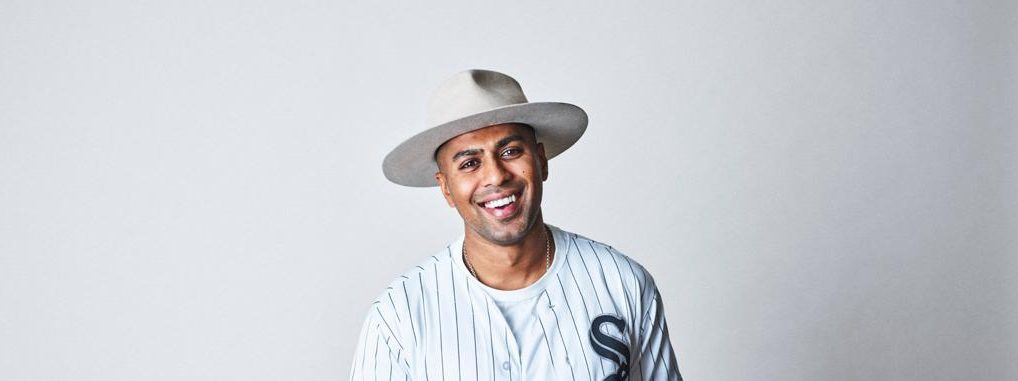
You’ve got a reputation as one of the nicest guys in the game – where does that mentality come from, and why is it important to you to do business that way?
It’s not my intentions to try and be a “nice guy”, I was just brought up with two parents that taught me to treat people well. I think if you’re doing business or anything you do in life if you do things in a positive manner and attitude and you treat people the way you’d like to be treated 99 percent of the times you get greeted back with the same response.
I know you are probably NDA’d up to the eyeballs, but you do quite a few big celeb parties – how do you find DJing with some of the most famous names in the world dancing around you and making requests? Do you have any stand-out moments you are allowed to share?
Honestly you just have to treat it like any other gig. I’m there to entertain whoever is there in front of me. But the nice thing with these gigs is you’ll know who’s going to be there before you get there. So you can do research, so if I’m playing for Tommy Hilfiger or Bono/U2 I can do my research on what they personally like and throw a few of those in.
Personally I wouldn’t want to share a lot of those moments because that’s their time to just release and not have everyone on their case that’s why as much as I’d like a pic with Madonna or Samuel L Jackson I’m not going to take a selfie with them. They wanna have their fun!
But some moments have included getting fist bumps off the Prime Minister at the time or throwing a mic to Bono and him catching it and singing it. I’ll leave it at that.
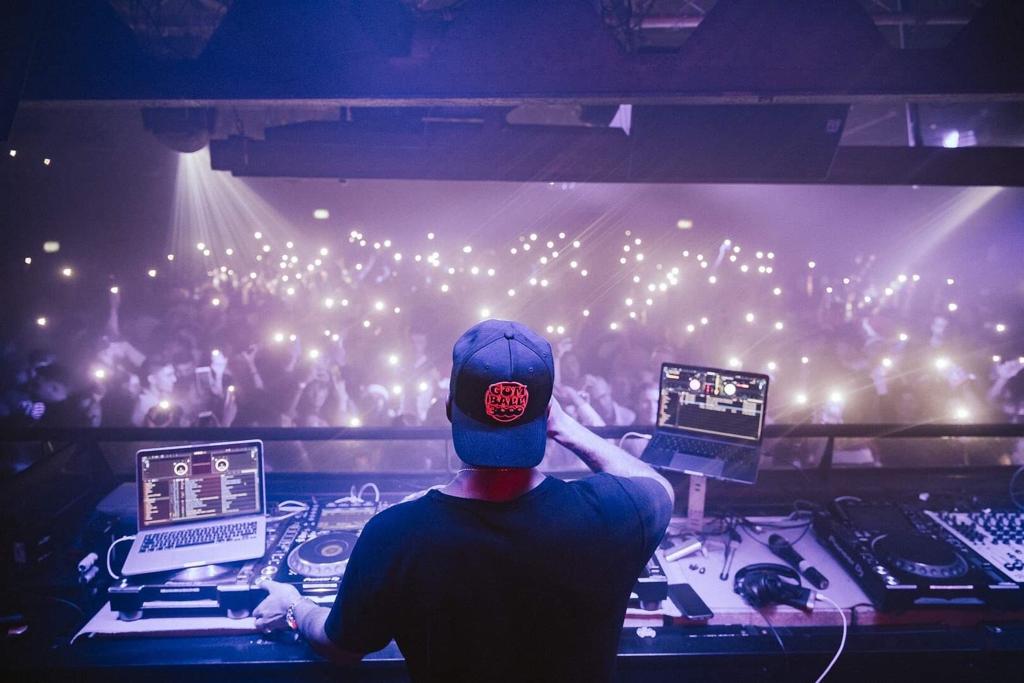
You’ve seen both sides of the game – as a DJ, and as a promoter – and so have a very rounded, even perspective. What things would you say DJs need to consider about the industry that they sometimes forget?
Treat people with the same respect as you want to be treated no matter if it’s the glass collector or the prime minister. Another is you’re there to entertain, give the people that’s in front of you the most fun they could possibly have.
What’s the most fun party you play regularly? And what’s the moment in your career where you had the most “wow, this is crazy” feeling?
There’s so many things I do that I find fun, in fact is go as far as saying as I do so many different things I find it all fun. Whether it’s playing the latest hip hop and trap to students of London at the main room at Ministry of Sound or touring with Eve or Romesh, even doing some of the cool corporate or private parties or even the festivals. I love genuinely love doing them all
You’ve become the resident DJ for the Hip Hop Saved My Life podcast – how has your time on the mic in clubs prepared you for interacting with a comedian like Romesh on stage!? And how important do you think mic work is in general for a DJ?
I love working Romesh, the guys a genius!! He loves hip hop, like really loves it. I don’t know how he has time to filter through all this new music with everything he does. His whole team are amazing and just a pleasure/honour to work with.
His shows are wicked and ones I just feel at ease doing, I love the music, his crowd is great and I can be as hype as I want to be to get the show warmed up.
I think just learning it all is important doing mic work, being able to be technically apt and cut up a record but most importantly I think your song selection and how you drop tracks is the most important trait of being a DJ
Big up man like Romesh!
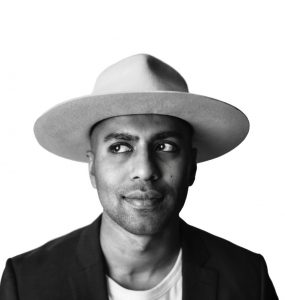
What advice would you give a DJ that is keen to grow out from just playing traditional club and bar gigs?
Do things authentically, and be genuine. If you see something that you really want to do put it out there and try and make the right moves organically rather than it being forced and in the long run you’ll make the right relationships that are sincere that can put you in those places.
You’ve also moved into booking DJs for several venues – what sort of things do you look for in the DJs you have on your roster?
Great question.
1) They’re good people
2) They’re great professional DJs at rocking the crowds at those venues
3) They’re team players.
4) They act and look the part
5) This isn’t the most important thing, but having social media account that represents them is important
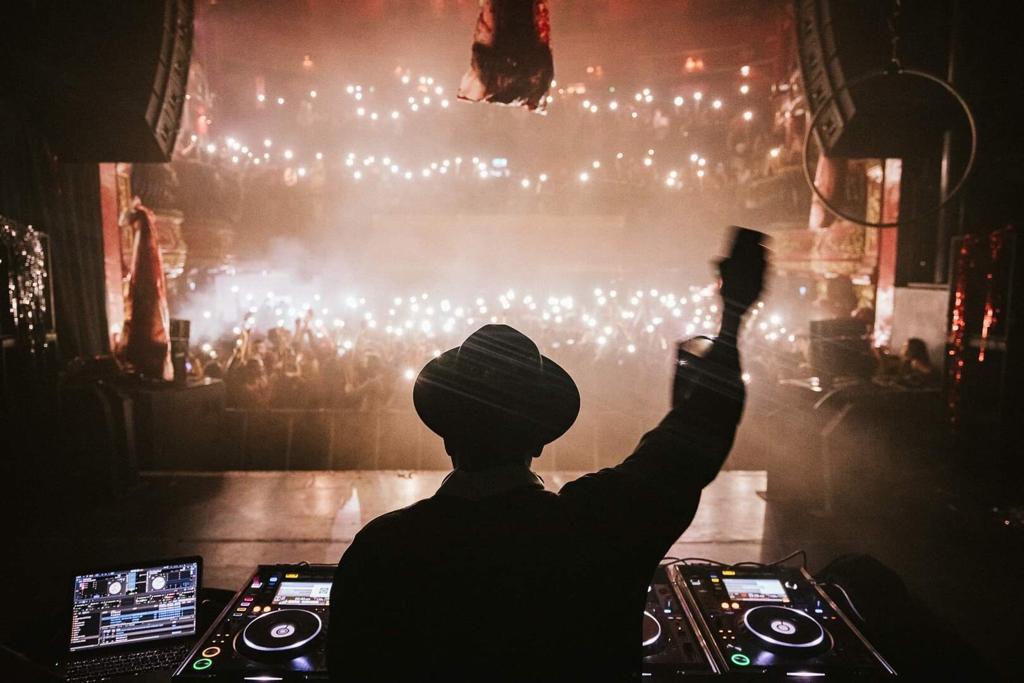
If you could book a dream line-up for a festival stage, which DJs would you go for?
Artists wise, as it’s a dream line up I can have people that have passed away
Prince
Kanye West
Janet Jackson
Bruno Mars
Eve
Kaytranada
DJ Jazzy Jeff
Mark Ronson
A-Trak
Andy Purnell
Hosted by Trevor Nelson, and me DJing inbetween.
Check out Martin’s website here, and his Instagram here
Want to get your game up to this sort of level? You’re going to need some bangers! Get digging for your tunes over at the Heavy Hits pool!
And follow me over here
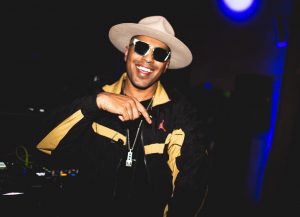
DJ Gravity One – Scratch LA
Can you tell the readers a bit about yourself, your DJ history, and what you do today?
I am a DJ based in Los Angeles, California. Originally from Lancaster, Ca. Shout out to all my Antelope Valley/661 people! Even before becoming a DJ I was a fan of hip hop music/culture. I started DJing in 1998. Thanks to my older brother who had purchased a cheap dj set up from a website (belt drive turntables and a Gemini Scratch Master Mixer). I had no clue what I was doing when my brother gave me the green light to give DJing a try. I was just trying to copy scratches and mixes I had heard from DJ Revolution on The Wake Up Show and Beat Junkies mixtapes, as well as other radio dj’s at the time.
Scratching was the first thing I learned how to do, after hearing Q-Bert do his Rock The Bells scratch routine on a Wake Up Show freestyle cd my older brother had. Scratching was the main thing I wanted to do. Then I discovered DMC battles and saw A-Trak’s set that won him the World Championship in 1997, and I was like “he’s like the same age as me”. After that seeing that my focus was on becoming a battle dj/turntablist with the goal of becoming a DMC champion. I was heavily influenced by the legendary dj crews such as: Invisibl Skratch Pikilz, X-ecutioners, Beat Junkies, The Allies, just to name a few.
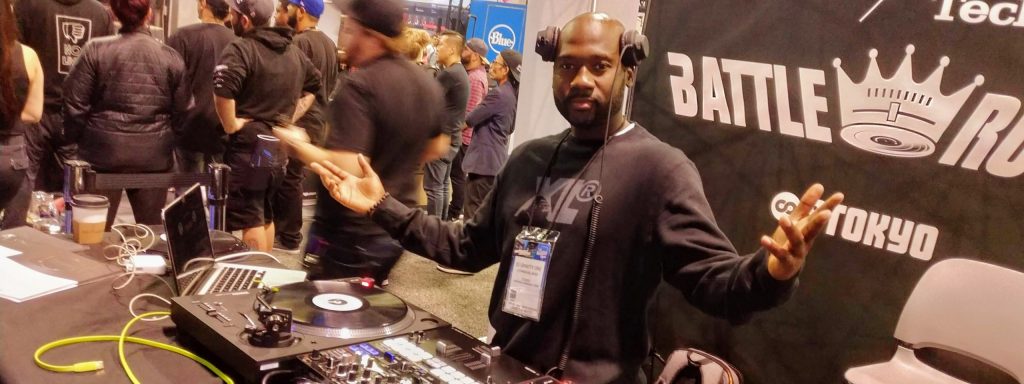
Around the time I got into djing I was very much into underground hip hop. I would say I was a backpack hip hop head when it came to my taste in music. Very much all about staying true to the pillars of hip hop and not embracing anything outside of that. As I started to become better at dj and finally dj some parties. My focus started to change on not only becoming a battle dj but a well-rounded dj.
These days my focus is not so much on being a battle dj and knowing all the super technical scratches and juggles that go with that. Also my backpack hip hop head way of thinking changed. As I like to say, “I loosened up my backpack straps” lol and I became way more open to commercial hip hop/different styles of music, and not so anti-anything that’s not “hip hop”. With those changes, I was able to start djing at Top 40/Hip Hop clubs around town and venture into the club scene in Hollywood/Los Angeles area. It was for sure a change from what I was used to, but nothing I wasn’t up for.
After doing the club circuit routine for some years. I wanted to see what DJing on the radio was like. It was something I was always interested in doing and I got the opportunity to become an on-air mixer on my hometown’s new Rhythmic Top 40 radio station (100.9 The Heat) in 2008. I went from doing the weekend mix to eventually doing the Mon-Fri evening primetime mix. I was still DJjing clubs while I was doing radio. I’m still doing the same thing these days. No longer DJing on my hometown’s radio station though. I stopped DJing on radio at the end of summer in 2012 to move out of my hometown and as well focus back on I’m currently a mixer on iHeartRadio 93.9 The Beat in Honolulu, Hawaii. I’m still very much a DJ Los Angeles area as well as an on-air mixer on radio, outside of teaching at Scratch LA.
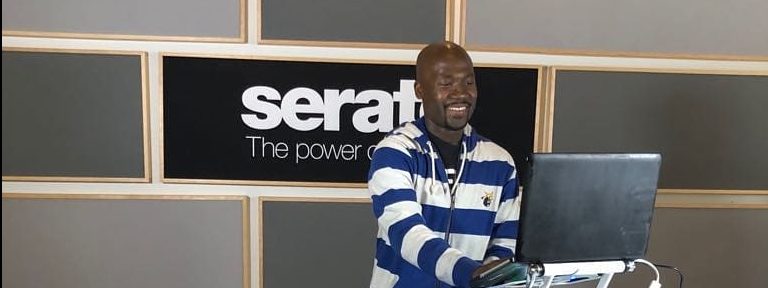
How did you get in to teaching DJing, and how did you find that transition?
I used to work with Scratch Events before working on the teaching side at Scratch. There were some events where I had to do some minor teaching at events, nothing serious. Just showing some people how to do a baby scratch on beat. It was kind of an accident how I got involved on the teaching side of things.
My brother, who is also a DJ, mentioned to me that he was thinking about working at Scratch during his off-time from touring. I said to him let me know when you go up there. I ended up going with him to meet up with the director at the time, who I had known from working with Scratch Events, and DJing his monthly party, where I would DJ alongside students that were given the opportunity to drop a set in the other room at the gig. On top of that, I knew some of the other instructors there at the time so It wasn’t too much of an awkward feeling being there. When the director walked and saw I was there with my brother. He asked if I wanted to come on board to assist in class too, to see what it was about and if I like it. I said sure.
I’m not gonna lie It took me a sec to figure out how to explain to DJing to someone that has no clue about DJing or the music theory that goes with. I had to learn some of that stuff myself. I’m a self-taught DJ so the structure/music theory that was being taught in class was something I had never seen or heard before when it comes to DJing. I understood it from the trial and error that comes with being a self-taught DJ over the years. I understood basically everything that was being taught to students. The challenging part was having to explain it to students. Talking to other DJs is easy since we already speak the unspoken language of DJ/scratch talk.
What sort of people do you get coming to you to learn how to DJ?
We get all walks of life that come through to learn – kids, adults, parents, couples, grandparents, company workshops, etc. A lot of times people only think that I only teach kids, but it’s actually the opposite. There are more adults that are enrolled in the program at Scratch. We do teach kids there in private lessons and the summer camp classes. But to enrol in the program you have to be 18 or older. Some people come in saying that learning how to DJ or scratch was something that they always wanted to do. They just didn’t know how to go about doing it, or didn’t know any dj’s to teach them. Then we have the usual that went to a festival and got inspired.
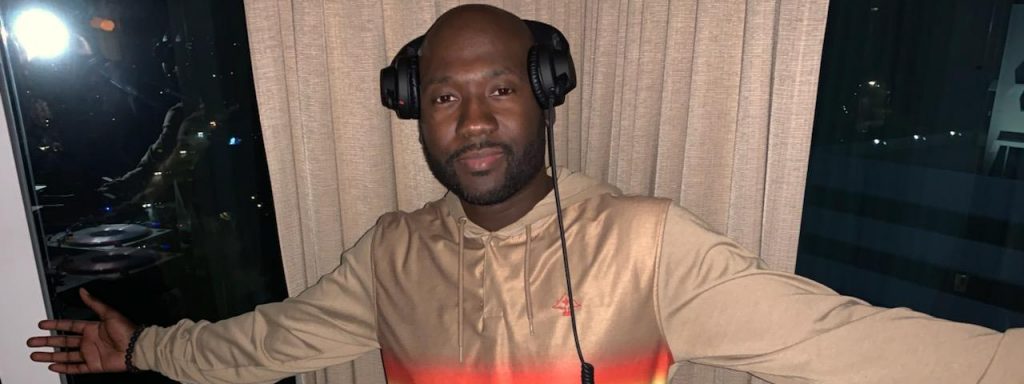
Can you tell us a bit about ScratchLA?
It’s the Los Angeles Branch of the original Scratch DJ Academy based out in New York co-developed by Jam Master Jay of Run DMC.
How do you balance hands-on experience with theory?
I would say it 70/30, with 70% actually being hands-on. I can talk about how to dj all day. Actually doing it is the tricky part for some students. Figuring out how much pressure to apply to a record. Understanding minor and major adjustments. A lot of little things that us seasoned DJs forget about. Like what it’s like to be new to all things DJ related (how to wear headphones, what to listen for, hand placement, etc). Not mention these days you have be a little bit computer savvy with programs like Serato.
What would you consider the most important aspects of learning to DJ for a complete beginner?
Not trying to rush things. Learning the music theory and the basic DJing.
What’s the most overrated thing that new DJs think is important?
Social media/look. Don’t get me wrong I understand how social media is part of what being a DJ these days. Anyone can look like a DJ on social media but when its showtime and you don’t have any of basic fundamental DJ skills to back your look, your DJ career won’t last too long. At some point, someone is gonna see through the look.
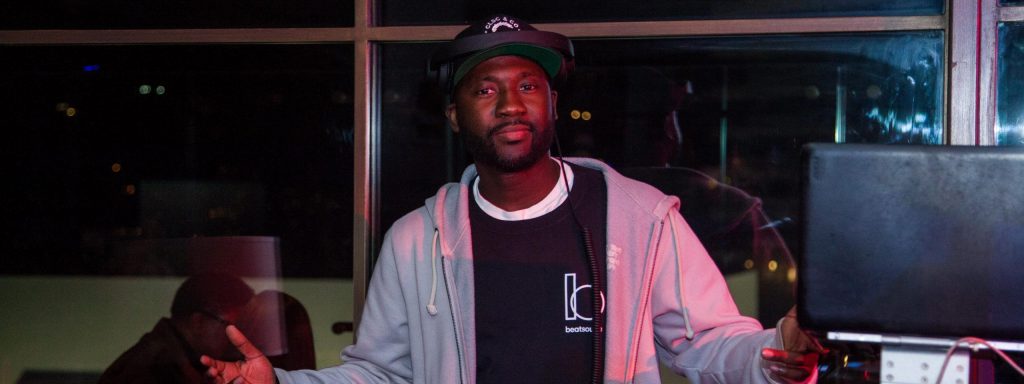
What’s the most underrated thing that new DJs don’t realise is important?
Prep and practice. People think that if they have tons of music that they are golden. Putting together a playlist and actually DJing are two different things. There are certain things that can’t be taught, such as reading a room. Practice is something that is underrated as well. Watching videos and listening to mixes are great things for inspiration and ideas. You gotta apply what you have been taught for it to stick. Especially when it comes to scratching and understanding Ableton.
If you could go back and teach yourself a class in the first months of your being a DJ – what would you focus that on?
The things we teach in a level 1 intro class. Which is understanding the music theory that goes with DJing and learning how to match beats. It took me like a year and a half to match two different songs. As soon as I understood how bpm works and to listen it clicked.
How have students changed over time as DJing has become more mainstream in popular culture?
There is still the perception that DJing is something that doesn’t take any skill to do. It’s easy for new students to think that. You can go to YouTube and watch any dj from the hobbyist, up to the main stage at any festival/competition There is less focus on learning the skill of DJing. Some want the quick shortcut to learning which doesn’t exist. You have to put in the work. Students don’t realize how much goes into knowing how get songs to match up and mix together. Sync doesn’t fix everything.
Can you tell us about what you’ve got coming up, what ScratchLA has coming up, and any extra things you’d like to mention
The biggest thing right now is surviving this coronavirus pandemic. This gonna give me some free time to focus on things I have been putting off, like making new mixes outside of the regular radio work, getting better with music production. Basically being more creative.
You can find me on all social media @djgravityone.
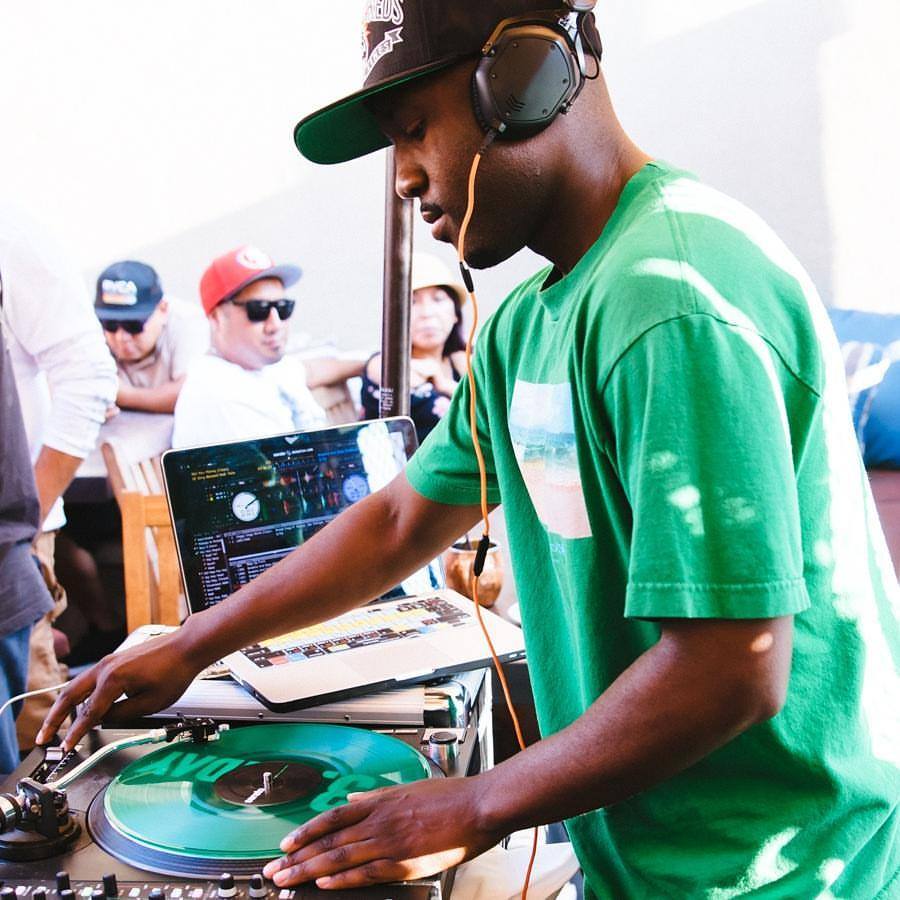
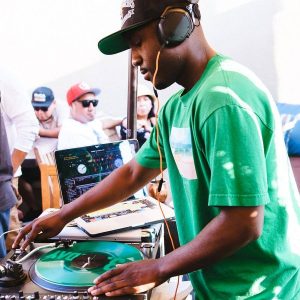
How To Be A Sports DJ – with DJ TP
With Super Bowl weekend upon us, I sat down for a chat with DJ TP, to ask him about how exactly a sports DJ goes about their job. Here’s what he had to say…
Tell us a bit about your career to date
I started out in the late 90s before my teens. At the age of 16 had my first club residency in London’s west end, and a weekly show on pirate radio. The same year I won the now defunct DMC Young UK DJ of the year Championships. Today I am fortunate to rock parties globally, working with some of the biggest brands, and on some of the biggest stages in the world, and residences in my hometown of London.
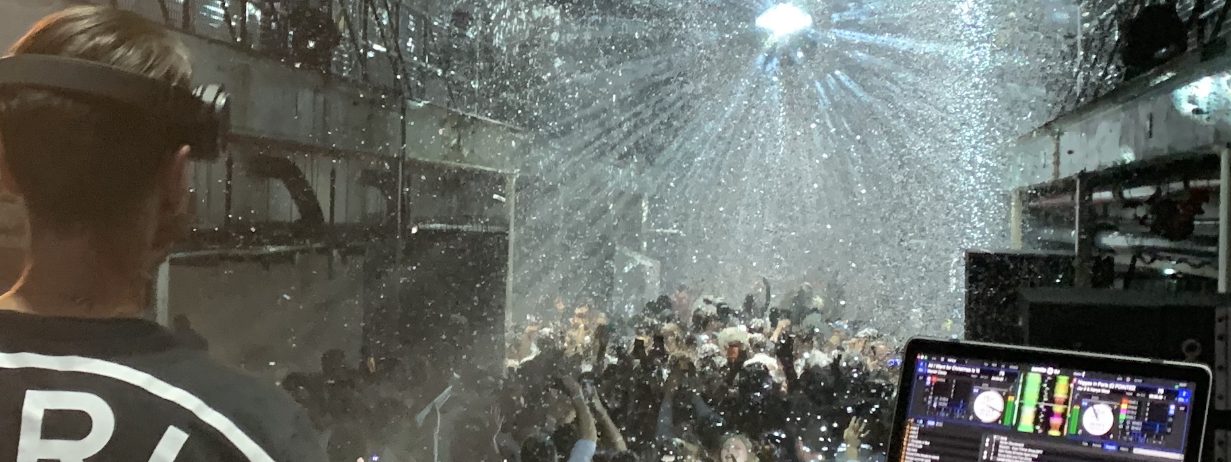
How did you get linked with the NFL games, and were you a fan before being one of their guest DJs in London?
Since 2015 I’ve been a resident for the England Rugby team. Over time, I gained relevant experience & key contacts in the sporting world. It was a natural progression to venture into other sporting industries, such as the NFL, MLB, the FA and UEFA. As with all DJs, not having an ego and trying your best to make people happy always helps! I have always followed the NFL, so it was great to play some part in their events, but will say I have become more of a fan since doing so.
How has your experience with this gig, and sports events in general been – what have you learnt from your gigs so far?
There are essentially two types of DJ in a sporting environment. The ‘reactive DJ’ has a really tough job, and will be responsible for player stings, music during breaks of play etc, working around things like VT and interviews etc. You will have in-ears or a speaker linked to the main production desk, and have to be prepared to react instantly to any instructions given, so your crates need to be organised and well-stocked. The other type of DJ would be a ‘mix DJ’ playing high energy, and topical mixes during longer breaks such as half time, or player warms ups for example, very similar to what you’d do as a guest mix on radio, something I also gained experience of in recent years guesting for the BBC, Kiss FM and Capital Xtra in London. For both types of “in-game” DJ, you have to be prepared with clean edits, tracks relevant to the teams, or sometimes even players. I have done more of the latter style, but hope to do more reactive DJing in future. The most important thing to remember is that you are a small part of a huge over-all production, so communication and listening to instructions is key. There is no room for egos or complacency.
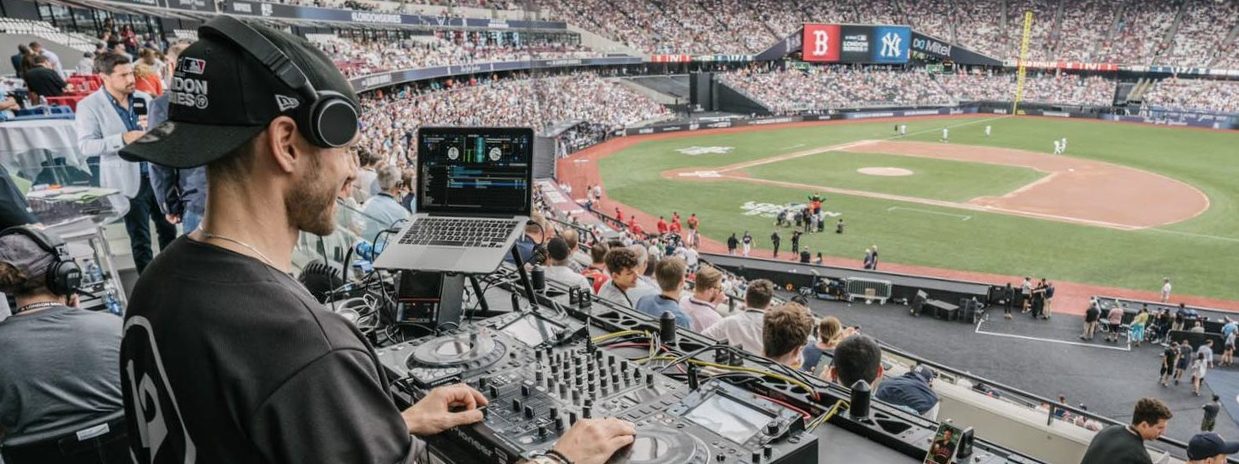
What does a game day look like for you? What are your duties before, during and after the game?
Sound checking nice and early (for the bigger events this sometimes takes place 1 or 2 days before match-day), linking up with the main production team/show caller to see what their requirements are. The production companies involved are incredibly well organised & will provide a timeline of events for the day, and in most cases a point of contact that will be by your side for the duration of the event to assist. The duties for a DJ vary, and in some cases I have been responsible for playing a fan zone outside the ground, running over to the bowl itself and then playing during player warm ups, half time, and post match as fans exit. You need a comfy pair of sneakers on days like that!
What’s been your favourite moment at a stadium event as a DJ?
The first time I played to a sell out crowd of 84,000 at Wembley was a bit of a shock to the system. I had previously played an exhibition match to 20,000 but the stadium felt so different being full and with that level of production on board. It was during a Titans v Chargers game, the booth was right up in ‘the void’ next to the jumbo screen – of any stadium I’ve played in before or since, this has the most incredible view. I mixed the player warm ups & half-time sets, spinning everything from Queen and Ed Sheeran, to Kanye and Lil Wayne. I am not a famous DJ or well know producer, who are the regular ‘go-to’ for such huge events, but I did work hard for the opportunity over a number of years and really appreciated something so special, and the platform it has given me since. I also got to meet the main reactive DJs who are hugely experienced (playing the super bowl annually) and do an amazing job. I am hoping to learn more from them in future.
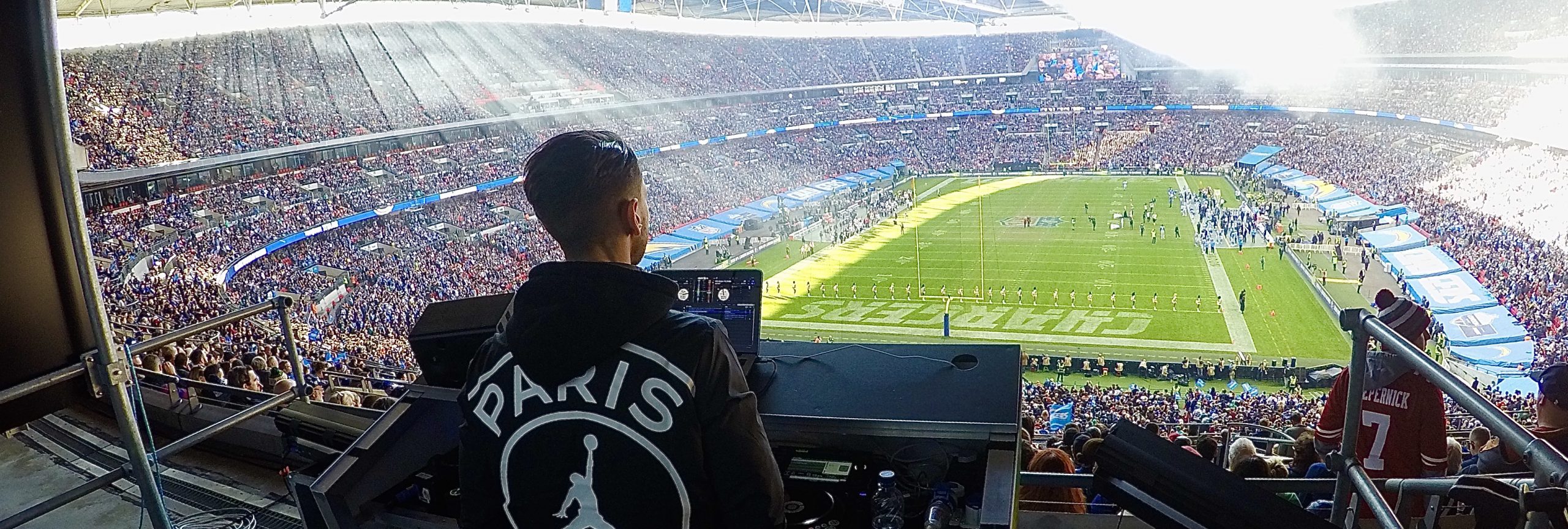
What have you learnt from DJing at NFL and other sports events? How does it link to your experience in clubs.
Picking the right track to get a huge crowd chanting, is magic. In the same way dropping a “Giggs” track in his native south east London gets a huge reaction. As the DJ, you play a key part in generating an atmosphere. If your set gets the crowd going, they in turn can have a direct impact on the performance of the athletes. You can even play tracks to dampen the spirits of the opposition. It does help to have knowledge of the teams playing, their rivalry, or even tracks that you know the players like. With the Jacksonville Jaguars, we get a brief, and it was crazy to get fist pumps from the players in the tunnel when I dropped Travis Scott ‘Highest in the Room’. The team lost badly, but still, they were hyped at that moment before the game, haha!
How do you cope with nerves when there is such a huge crowd?
Before anything I’d say being organised, getting there early and having total faith in your set up! I’m a Serato DJ and make the necessary checks to ensure everything is cool. Like any daunting gig (hell even weddings can be scary), once you’ve done it, you can go back with less nerves. Lastly, remember to have fun with it & don’t over complicate things. In some cases, the scale is so big you cannot fully comprehend it which is perfect! You just turn up your both monitor, and rock-out just like you would at home.
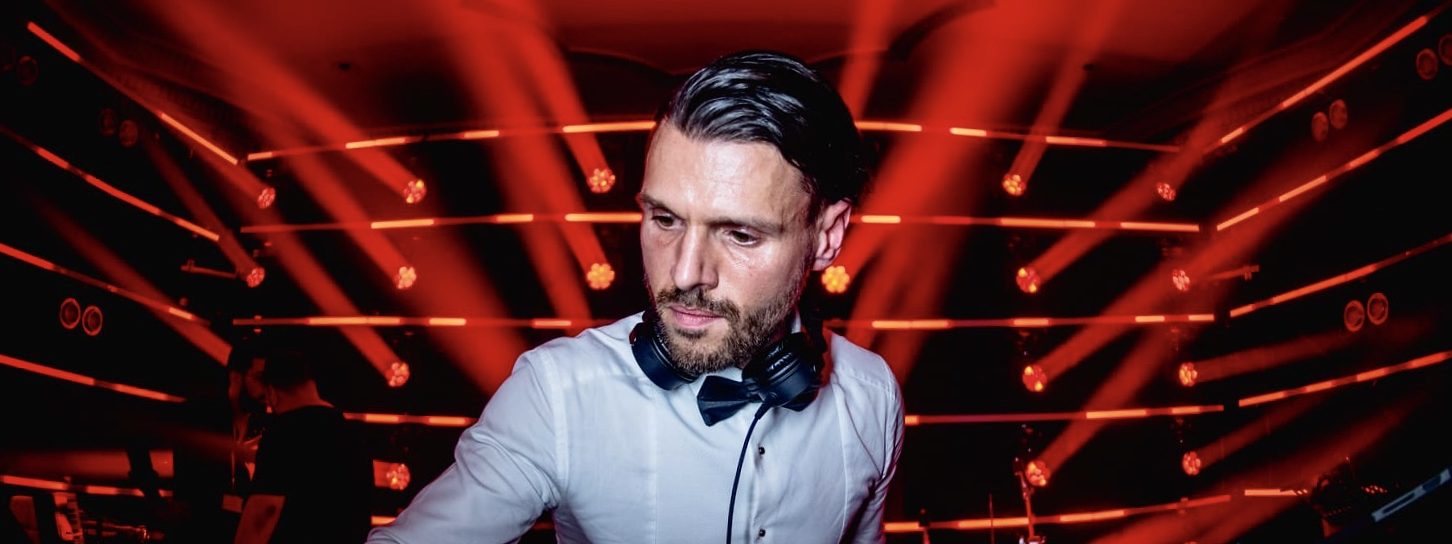
Apart from NFL games, what have been the highlights of your DJ career, and what goals do you have for 2020?
I have something really special happening this summer, but I am not yet allowed to officially share the news! Its something sports linked and could well be the highlight so far. I am really excited for it.
I am really lucky to have DJ’d & curated for some of the biggest brands all over the World, the likes of Google, Tik Tok, Facebook etc in the last year alone. I’m most at home in the club (playing mainly hip hop, and sometimes house), but I also play a variety of special events linked to my background in the events industry. This new years, I was responsible for playing a star-studded NYE dinner under the backdrop of the Burj Al Arab in Dubai where I counted in the new decade. In terms of sports, the experience I have gained has enabled me to be a safe set of hands for some of the biggest stadium events in the UK and I’m hoping to do this internationally later this year.
For my own highlight to date, I grew up a huge fan of UK Garage, so seeing Craig David sing ‘Rewind’ at the first ever MLB game in Europe, and jumping on the decks after him, playing to a crowd of 60,000 Red Sox & Yankee’s fans was quite a moment. I also got to meet him before the game and he was a straight up gentleman.
In 2020 I want to carry on in the same direction, and would love the chance of being a resident for my team, Arsenal FC, in the same way RedBull 3Style Champ ‘J Espinosa’ is resident for the Raiders (now of Las Vegas!), or ‘4 Korners’ is for the NBA Champions, the Toronto Raptors. I am a life long season ticket holder at Arsenal and have followed them all over the World through the highs and lows. As a kid I used to make mixtapes in the lead up to big games and play them all week before the match on my cassette player, which I suppose was my gateway to DJing. It’s a dream to create an atmosphere at the Emirates. I’ve also DJ’d and curated for the England Soccer team and hope to do more for them, and also would love to work with FIFA & UEFA.
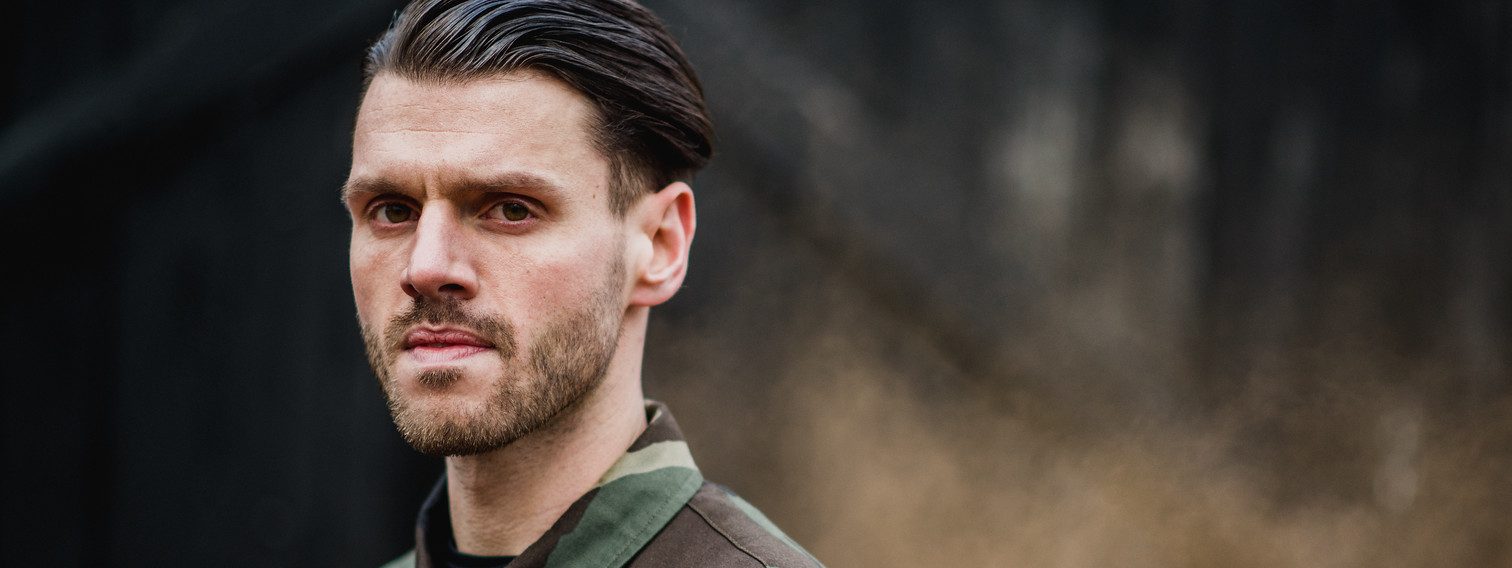
Anything else you want to let us know about?
Music is an incredibly powerful tool for sport. I have seen it directly increase participation, giving the young a chance to learn new skills, keeping them on the right path, especially in inner-city London. I am proud to have worked with England Rugby’s ’o2 Touch initiative’, where I helped create a series of mixes designed to be played during a touch rugby session (you can hear one below). Using current hits and mash ups gave the participants a point of relate to a slightly less fashionable sport they may otherwise have over-looked. The sport has grown significantly, and I even got the chance to give the England Roses team a DJ lesson along the way. I believe the UK is at-last seeing how to incorporate DJs & that music can impact the overall experience for fans and players, on all levels of the game. I hope to play a part in this during the next decade both in DJ/curating, and developing new formats.
Check DJ TP out here
Heavy Hits
DJ TP’s Stadium Anthems

Dan Savidge – Euphonica
DJing is a lot of fun, but for many people it isn’t something they want to do full-time for their whole life – Dan Savidge is one such DJ, and here he tells us a little about how he created a business from his contacts made while DJing, and what he looks for in the DJs he hires for his company, Euphonica.
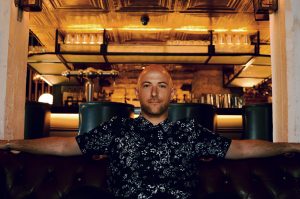
Can you tell us a bit about your path from DJing to what you do now, and tell us a little about Euphonica?
I’ve DJed professionally for 25 years, and along the way played on every continent, was resident at The End, released over 20 tracks and remixes on Defected, Strictly Rhythm, Ministry of Sound, Hed Kandi, Mn2S. I had a writing partnership with Byron Stingily, and have produced the likes of Robert Owens and Barbra Tucker. About 5 years ago, I yearned for daylight, and armed with a black book of DJ and venue contacts, founded Euphonica. We are a music agency, who curate music experiences at venues like Somerset House and Tate Modern, for private clients and brands like Dior, Google, Rolls Royce and Krug. We represent DJs, bands and classical musicians.
What led you to make the transition from front end to behind the scenes?
The nightclub / studio / tour life treated me well, but it was time to surface, blinking into the sun.
You work with a lot of DJs, across all manner of events. What sort of qualities will make you go back to DJs for regular bookings?
Selection – A DJ set at the V&A is going to be very different to a set at Printworks.
Consistency – we programme residency DJs seven nights a week at the likes of Skylight and Swingers – we require high standards day in day out.
Absence of ego. To quote Henry Rollins: “No one has time for your rock n roll star bullshit.”
What are the biggest challenges of having to rely on dozens of different DJs to represent your brand?
Performance is key, though subjective. Clients like Dior or Facebook won’t mind if a mix falls out or a guitarist misses a note. They get twitchy if an artist is late, or a dick. We respect and look out for our artists, and get the same from them.
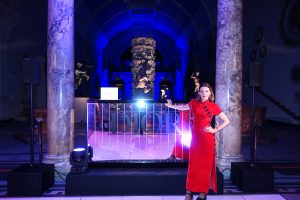
What’s the most unusual venue you’ve organised an event for?
Euphonica delivered 20 drummers pitch-side at Twickenham Stadium for the Rugby World Cup Finals.
On a personal level, DJing in a church for 100 guests, where the only other act was Stevie Wonder.
What’s something about running an agency that nobody told you about?
HR! I have the best team I could wish for, but getting there took time.
How have audiences changed over the years that you have been involved with DJing? And what changes and challenges has this led to?
Smoking ban – half the club disappeared outside so you had to adapt to a more transient audience
Tinder – no one goes to clubs to meet people any more. Bars have taken precedence. Less vibe.
Phones – enough said
What does 2020 have in store for you and Euphonica?
Euphonica is moving offices, taking on new DJ residencies, with some amazing new acts to launch. Keep your eye on @euphonicalive and euphonica.com
Heavy Hits
Dan Savidge Pool Picks


